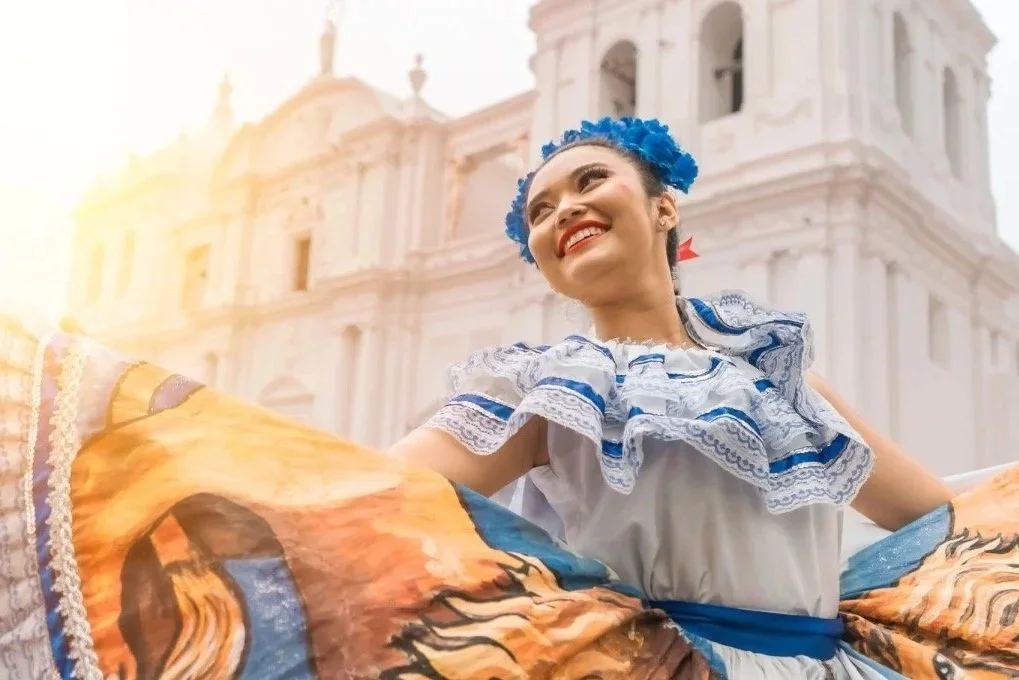Celebrating the Legacy of Latin Music: A Tribute to Our Roots During Hispanic Heritage Month
Music is often described as a universal language - and it’s true. This powerful connection transcends borders, cultures, and generations. Nowhere is this more evident than in the rich and diverse tradition of Latin music. As we honor Hispanic Heritage Month, it’s impossible not to recognize the profound impact Latin music has had on the world, shaping the global music scene both historically and in contemporary times.
When we speak of Latin music, we’re referring to more than just a genre; we’re talking about a vibrant, expansive cultural tapestry that spans continents and centuries. From the seductive rhythms of salsa to the passionate flamenco and from dramatic ranchera ballads to the infectious beats of reggaeton, Latin music has influenced every corner of the world, leaving an indelible mark on artists across the globe.
The Power of Female Artists in Latin Music
Karol G photo - Source: Karol G Instagram
Let’s take a moment to celebrate Karol G, the unstoppable force leading the reggaeton revolution. In 2024, this Colombian artist sold out arenas in countries across the world, proving that Latin female artists are now taking center stage like never before. Karol G is not just a talented musician but also a symbol of female empowerment in Latin music. Her meteoric rise serves as inspiration for generations of Latinx listeners and artists.
However, before Karol G’s reign, there were legendary women who paved the way. Celia Cruz, "The Queen of Salsa," left a legacy of joy, rhythm, and Afro-Latin pride that continues to resonate globally. Then there’s Mercedes Sosa, the Argentine voice that spoke truth to power, infusing music with social justice and deep emotion. And Jenni Rivera, whose powerful corridos, rancheras, and ballads gave a voice to the struggles and strength of Mexican-American women, became an icon of resilience and courage.
These women were not just artists—they were revolutionaries who showed us that music is a space for protest, healing, and unity. Their melodies continue to echo in the hearts of millions, even years after their passing.
The Heart of Latin Music: Connecting Through Sound
Whether it’s the timeless tango of Carlos Gardel, the soulful lyrics of José José, or the iconic “El Día Que Me Quieras” that tugs at the heartstrings of every lover, Latin music transcends borders and languages. The contributions of Tito Puente to mambo and Latin jazz continue to electrify audiences, while Vicente Fernández’s romantic ballads, like “Mujeres Divinas,” remain a staple in every Latin home.
But beyond the melody, it’s the stories behind these songs that make them unforgettable. Whether it's Selena capturing the hearts of fans with her infectious spirit or Juan Gabriel’s anthems of love, longing, and hope, these artists’ voices have woven an emotional and cultural fabric that unites us. The shared connection we feel when listening to their music, regardless of where we come from, is a testament to Latin music’s universal power.
Latin music doesn’t just speak to us through lyrics; it connects us through rhythm, through the beats of drums, the strum of guitars, and the passionate notes of trumpets or violins. It's a celebration of life, love, pain, and joy. It reminds us that, no matter our differences, we are all part of something much greater than ourselves.
As I’ve shared in a previous post about the healing power of music, Latin music has the unique ability to bring people together. It reminds us of our shared humanity and culture, making it an undeniable force in our communities.
A Celebration of Latin Music’s Ancestors and Legacy
As we celebrate Hispanic Heritage Month, it’s essential to recognize that the musical legacy of Latinx artists is far from new. Latin music is built on centuries-old traditions passed down from our ancestors—who sang of love, loss, freedom, and faith. From the sounds of indigenous flutes, the rhythms of African drums, to the harmonies of Spanish guitars, these roots have shaped the music we love today.
The music we listen to now is a way of honoring our ancestors. It’s a thank you for the cultural and musical legacy they left us, a way to keep their stories alive for future generations. From the enduring influence of Ricky Martin, Daddy Yankee, and Shakira, to the trailblazing sounds of Bad Bunny who continues to shape the future of reggaeton, we are reminded that Latin music is not just a genre—it is a movement. Each new artist carries the flame forward, ensuring that the legacy of Latin music continues to evolve and inspire.
The Power of Latin Music to Unite Us All
Music has always been a space where we come together, regardless of our backgrounds or language. In moments of joy, sadness, love, and loss, we dance, we sing, we laugh, we cry—all through the sound of a song. And no matter where we are in the world, the connection we feel when we listen to Latin music is universal.
It doesn’t matter if we don’t understand every word—the rhythm, the melody, and the passion speak to us all. That’s the beauty of Latin music: It’s not just sound. It’s a way of being. It’s a shared experience. A collective journey. And every note, every beat, reminds us that no matter where we’re from, we are part of something bigger.
So, as we reflect on the incredible influence of Hispanic music, let’s celebrate not just the artists shaping the future but also those whose legacies continue to live on. From the stage to the streets, Latin music will continue to inspire and unite us for generations to come.
I created The Legacy of Latin Music playlist celebrating some of the incredible artists mentioned in this post. So, ¡Viva la música! 🎶



